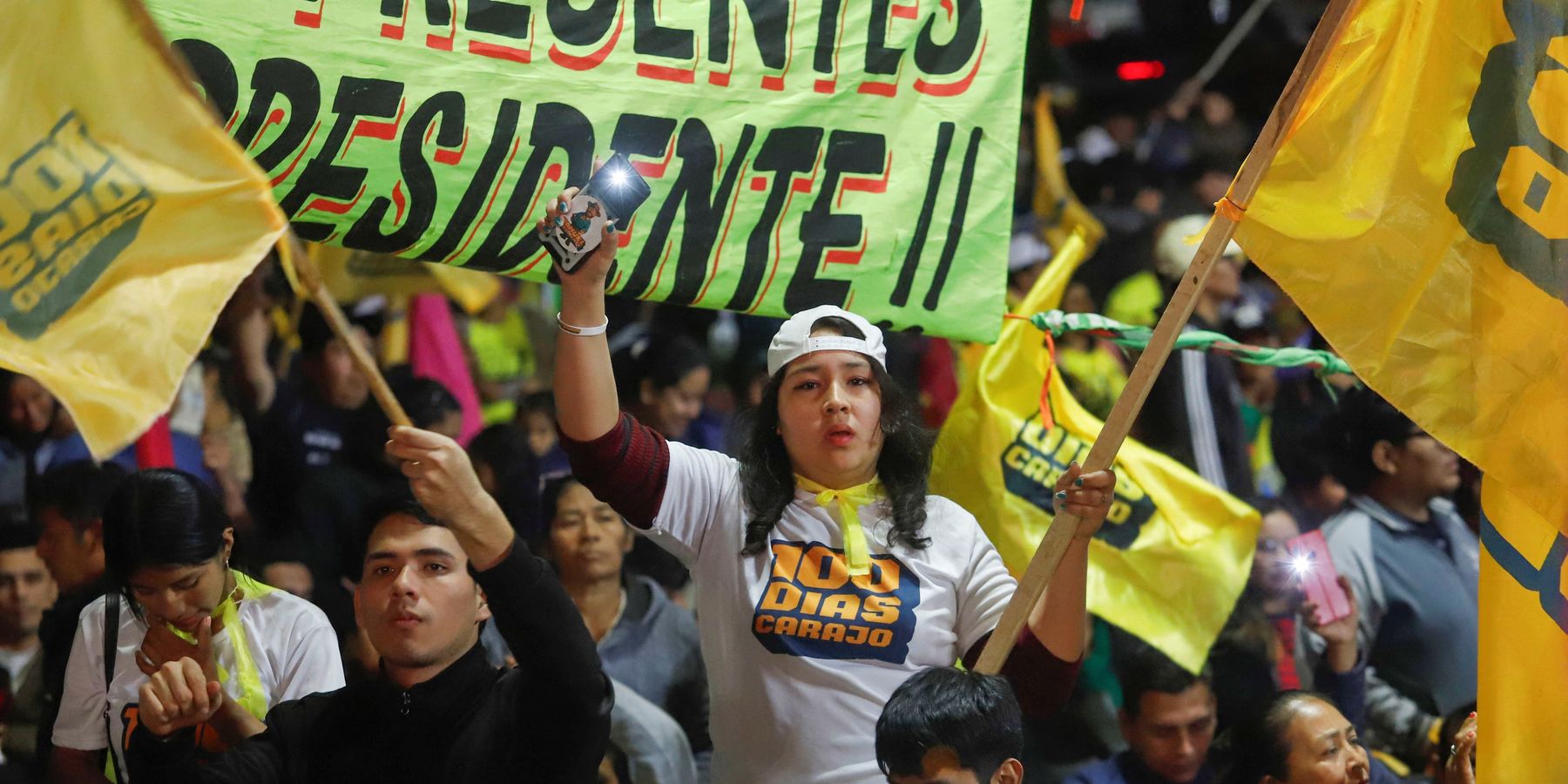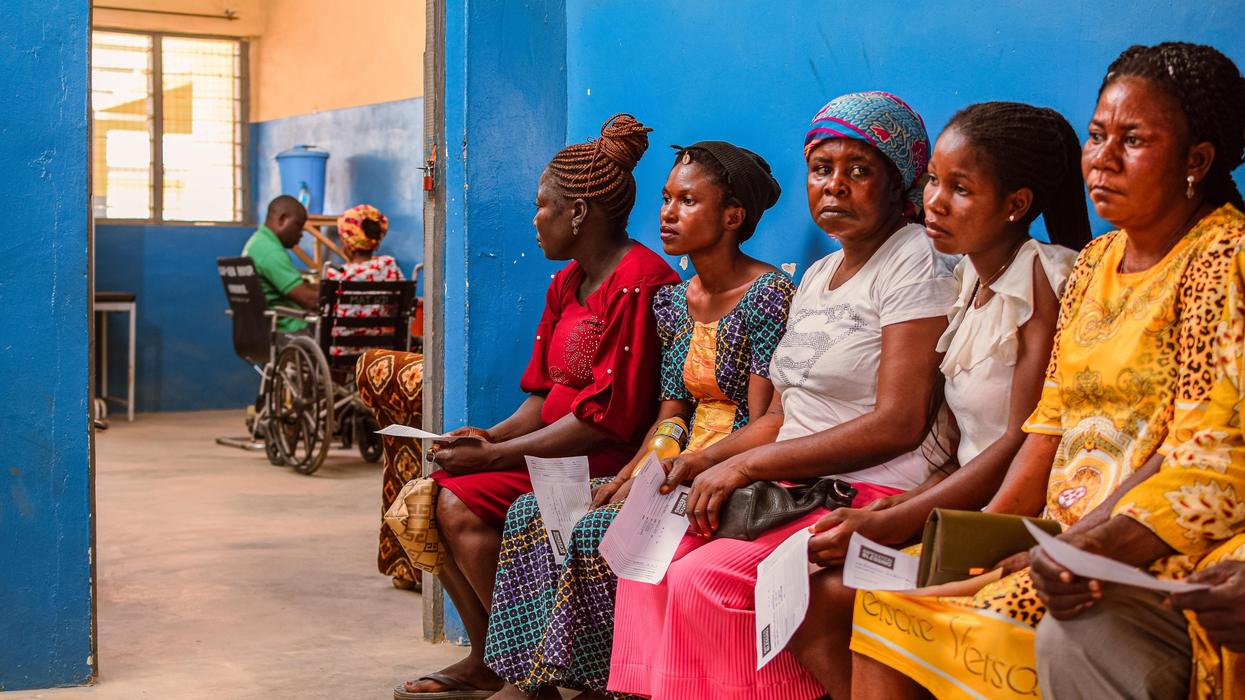Bolivia heads into a critical presidential election on August 17th, the first round in what is widely expected to be a two-round contest.
With none of the five major candidates polling above 25 percent, a large “blank/nill vote campaign,” and the two left-wing candidates trailing behind the right’s candidates, the fragmented political field has raised the prospect of a run-off for the first time since 2002, before Evo Morales and the Movement Toward Socialism (MAS)’s rise to power.
The MAS’s appeal, including with lower socio-economic classes, is dwindling due to its inability to manage mounting crises: from a severe fuel shortage (and the looming spike in prices when subsidies collapse) to a dollar shortage, risk of default reflected in Bolivia’s CCC- Fitch rating, and rising inflation. All of these cut directly against the MAS’s core appeal of helping ordinary Bolivians, particularly the indigenous majority, make ends meet and improve their daily lives.
This time, the leading contenders by order of polling averages — Samuel Doria Medina, Jorge “Tuto” Quiroga, Andrónico Rodríguez, Manfred Reyes Villa, and Eduardo del Castillo — represent deeply divergent visions for Bolivia’s role in the world. The candidates shared their plans with Responsible Statecraft so we could get a sense of what kind of foreign policy they envision for Bolivia’s future.
Historically, Bolivia was a close U.S. ally during the Cold War and the neoliberal era, with Washington exerting significant influence over its economic and security policies. That relationship shifted sharply in 2005 when Morales came to power, expelling U.S. diplomats and the DEA while rejecting IMF prescriptions.
Tensions deepened in 2019-2020, when Morales accused the U.S. and the U.S.-backed OAS of his ouster.
Former presidents Morales and Luis Arce, once standard-bearers of the MAS’s self-avowedly “anti-imperialist foreign policy,” are notably absent from the race. Internal disputes, major national crises, and ensuing unpopularity sidelined Arce, while Morales has been barred from running despite continuing his protests and leading a blank vote campaign. Their legacies nonetheless loom large over the election, particularly in the realm of foreign policy, where Bolivia has long stood as a rare bulwark against U.S. intervention.
Over the last two decades, under Morales and Arce, Bolivia emphasized South-South cooperation and solidarity with socialist states and signed multi-billion-dollar energy partnerships with China and Russia, and security deals with Iran. The country cut ties with Israel, led socialist multilateral organizations like UNASUR and ALBA, founded the Hague Group, expelled U.S. diplomats and the DEA, dismissed deals with the IMF, and sought BRICS membership as a way to assert sovereignty and resist Western influence.
But this may be about to change. A worsening economic and financial crisis, a stagnant lithium extraction project, growing foreign debt, dwindling currency reserves, and the political instability of recent years have opened up a new space in the national conversation, one in which partnerships with the U.S., China, Russia, and the BRICS bloc are being reconsidered.
With developing crises, there appears to have been a shift in Bolivians’ opinions on foreign policy, making a course change more popular. The left still warns strongly against any renewed U.S. influence or neoliberal prescriptions, though less loudly, while the center and right-wing have moved past their reticence against outreach to Washington. In previous election cycles, even the mention of such partnerships was an electoral death sentence.
Current frontrunner Samuel Doria Medina, a business magnate and perennial centrist candidate, is emerging as a potential third way. His self-avowedly liberal economic plan calls for sharp reductions in public spending and the closure of state-owned enterprises. On foreign policy, however, Doria Medina’s stance is more moderate.
Doria Medina’s plan lacks specifics, but his focus on diplomacy as business is clear. His camp presents this as an alternative to the ideological “extremes” of MAS and the right-wing. Critics warn that such centrism often masks neoliberal orthodoxy under a polished veneer, particularly given his support for the IMF and World Bank, and gutting of popular social programs.
There are two MAS-affiliated candidates: Senate President Andrónico Rodríguez, who has led a more grassroots campaign, and media-savvy Government Minister Eduardo del Castillo. Both are fighting to inherit the MAS legacy, though they have rejected the notion that they are “Arcistas” or “Evistas.”
Rodríguez’s plan mirrors Morales' anti-imperialist narrative, often invoking Bolivian sovereignty and warning of foreign meddling. He also briefly discusses climate diplomacy, South-South cooperation, and “popular diplomacy.” However, his silence on BRICS suggests a possible deprioritization of international alignment in favor of domestic agendas, including constitutional reform, judicial restructuring, and economic stabilization.
His running mate, Mariana Prado, who was a minister under Morales and was ousted after allegedly working with USAID, has publicly stated her admiration for Brazilian President Lula’s pragmatic diplomatic model, which she has said her government would emulate. In an interview with La Razón, Bolivia’s most important newspaper, she called for a foreign policy that is “open to all,” case-by-case, and non-ideological. This echoes the “active and pragmatic” diplomacy of the left in Brazil, Mexico, and Chile: engage with China and the U.S. on an equal-opportunity basis, pursue BRICS and Mercosur integration, but avoid confrontations. This is a significant change for the Bolivian left.
Del Castillo, by contrast, presents himself as a modernizer of the MAS legacy. His plan, dubbed “Bolivia First,” emphasizes state-led economic development, industrialization of lithium, and internal security. In his government plan, Del Castillo talks about Bolivia as a leader in the multipolar world, championing “anti-imperialism, anti-capitalism, decolonization, and anti-patriarchy.” He discusses fully joining the BRICS and continuing Bolivia’s partnerships with the Global South, including China and Russia.
A pro-MAS analyst, Daniel Flores Escobar, has more explicitly framed the election as a referendum on national sovereignty versus foreign subjugation, stating that Bolivia must avoid becoming a “republic subordinated by foreign interests.” This would mean a continuation of an “anti-imperialist foreign policy” under a MAS government.
Yet, notably, neither of these MAS candidates have put forward detailed foreign policy roadmaps. Together, the two MAS candidates’ entire foreign policy strategies total less than five pages. This suggests that, should the left win, Bolivia’s current foreign policy orientation would persist, but may be on the back burner.
On the opposite end of the spectrum are two staunchly conservative figures, former president Tuto Quiroga and Cochabamba’s mayor and retired Army Captain Manfred Reyes Villa, both of whom present clear, detailed foreign policy visions that would represent an explicit break from two decades of the MAS.
Quiroga’s program frames Bolivia’s current foreign alignment as “servile to tyrannies” (like Cuba and Venezuela) and calls for a return to a “free and democratic” foreign policy — ironic given his role as dictator Hugo Banzer’s vice president and a key diplomat for Jeanine Añez’s authoritarian government. He pledges to restore relations with the U.S. and Israel, withdraw support from regimes like Iran and Venezuela, and push Bolivia back into alignment with what he calls the “community of democratic nations.” His 2020 platform, reused with minor updates, describes BRICS as a grouping of “autocracies” and dismisses South-South solidarity as misguided.
Reyes Villa similarly calls for re-engagement with the U.S. and Israel but offers less detail. His proposal emphasizes economic liberalization, attracting Western investment, and combatting “socialism.” Both men propose a reorientation away from China, Russia, Iran, and the BRICS, in favor of U.S. ties and participation in U.S.-led multilateral and financial institutions.
Moreover, the specter of Donald Trump returning to the White House raises further concerns, especially if Bolivia becomes a target. Tariffs and direct political or military-intelligence intervention could hurt the popularity of a close relationship with the U.S.
This election marks a pivotal juncture in Bolivia’s trajectory. For the first time in a generation, as Bolivia faces historic crises and the MAS is increasingly unpopular, voters are being offered a choice featuring starkly contrasting worldviews, ranging from a return to U.S. alignment, to a cautious centrist balancing act, to a continuation of the anti-imperialist posture that has defined the MAS revolution.
That choice will have an enormous impact on how Bolivia meets this moment, or returns to an era of darkness while deepening the pains felt by the average Bolivian.
- The elusive Chinese boogeyman in Latin America ›
- Why is Latin America so pro-Palestine? ›
- Bolivia shocker: dark horse comes out of nowhere to win presidency | Responsible Statecraft ›
















